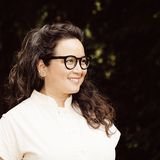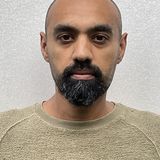The new Designing Cities for All: RE-generation series Beings of the Economy with DCFA Fellow Shinta Oosterwaal is an exploration into the idea of an economy as a sanctuary for all life. Our current economic system and thinking is resulting in polycrises. Yet beyond scenarios of doom and catastrophe, something seems to appeal to a new wholeness. We need healing responses to a deeply fragmented world with a new economy. In this series, we dive deeper, personally, and ask the question ‘how’ we may embark on a transformative journey to wholeness within the context of our economy.
The first episode of this series takes a deep dive into metacrisis which is defined as all the crises of our time together. Our broken down economic system [among other systems] brings the feeling of exhaustion and/or the experience of societal confusion. The main question of this episode that we aim to discuss is how are we in our fragmented world and how do we imagine that wholeness in it?
About the DCFA Fellow
Shinta Oosterwaal is a researcher at Avans University of Applied Science and co-author of the book THRIVE – Fundamentals for a new economy , among others. Together with Kees Klomp, she collected a rich palette of very real and innovative economic frameworks beyond capitalism. As an unconventional economist, she reads the economic transition as a logical and organic process of renewal in which universal and expressively un-economic values speak through new thinking and doing in the pockets of change of society as a healing response to a deeply fragmented world. Shinta is particularly fascinated by the existential dimension of transitions and by an economy as a sanctuary for all life.
About the speakers
Jonathan Rowson is co-founder and Director of Perspectiva. He was previously Director of the Social Brain Centre at the RSA where he authored a range of influential research reports on behaviour change, climate change and spirituality , and curated and chaired a range of related events. Jonathan is an applied philosopher with degrees from Oxford, Harvard and Bristol Universities. In a former life he was a chess Grandmaster and British Champion (2004–6) and views the game as a continuing source of insight and inspiration. His book, The Moves that Matter – A Grandmaster on the Game of Life was published by Bloomsbury in 2019. You can find Jonathan on Twitter .
Born in 1983 in Lahore, Pakistan, Ehsan Ul Haq lives and works between Amsterdam and Lahore. He works with sculptural forms that question their own inherent content, making, and object hood. Stripping away their histories, functionality, and their context. He has shown his works in various venues and institutions; A field guide to getting lost at Museum Het Nieuwe Domein, Sittard Netherlands, “Homemade equations” at Gallery Martin van Zomeren, Amsterdam, “Survival kit” at Latvian center for contemporary art Riga Latvia, “VOID: there’s nothing more left, but a little trace from human beings”, Ginkgo Space, Beijing China, Moscow International Biennale For Young Art, Moscow, ‘The Rising Tide’ at the Mohatta Palace Museum, Pakistan and more.
About Designing Cities for All: RE generation
Over the first two years of Designing Cities for All (DCFA), we’ve learned about exclusion by design and the (re)design of inclusive cities. Along the journey, a certain question kept popping up: what exactly does ‘for all’ entail? After focusing mostly on the ‘who’ over the past two years, DCFA is rebooting as Designing Cities for All: RE-generation . This way around, the series is also incorporating the ‘what’ by looking through the fresh lens of regenerative design. This emerging field might very well be a promising answer to the challenges of our time, as it focuses on the design of products, services, systems and processes that lead to both social and ecological recovery and that keep the systems healthy.


A song by Louise Harris

This is a resource/directory focused on curating all people/projects involved in the meta-crisis and linking them together to make new connections. This website itself is a meta-resource—a "resource of resources" including all the people and projects involved in the meta-crisis in some way, shape, or form.

Framing humanity's interconnected crises, existential risk, the prospect of collapse, and differentiating polycrisis vs. metacrisis

The Consilience Project publishes novel research at the leading edges of global risk mitigation, governance design and culture. The primary aim is to clarify and reveal the nature of the metacrisis to enable comprehensive solutions to global problems. Our content explores the key challenges and existential threats facing humanity, and the underlying problems with current approaches for addressing them. We outline how our social systems and institutions need to be redesigned if free, open, non-authoritarian societies are to survive.

Tristan Harris is a former Google design ethicist, co-founder and president of the Center for Humane Technology, and co-host of the Center for Humane Technology’s "Your Undivided Attention" podcast with Aza Raskin. Daniel Schmachtenberger is a founding member of The Consilience Project, aimed at improving public sensemaking and dialogue.








